
(1).
About the PhD
A Ph.D., short for Doctor of Philosophy, is a postgraduate academic degree that is awarded in various fields of study. It is the highest level of academic qualification one can achieve and is typically pursued by individuals seeking to become experts in a specific subject area and contribute to the advancement of knowledge through original research.
Here are some key points about pursuing a PhD:
| Research Focus | A Ph.D. program is primarily focused on research. It involves conducting original research, making a significant contribution to the existing body of knowledge in the chosen field, and producing a doctoral dissertation or thesis. The research work is typically supervised by a faculty advisor or a committee of experts in the field. |
| Depth and Specialization | A Ph.D. program allows for an in-depth study of a specific subject area. It offers the opportunity to specialize and develop expertise in a particular field, subfield, or research topic of interest. The program is designed to provide the advanced knowledge and skills required to conduct independent research and make original contributions to the field. |
| Duration | Pursuing a Ph.D. is a long-term commitment. The duration of a Ph.D. program varies depending on the field of study, the research topic, and the individual's progress. It typically takes four to six years to complete a full-time Ph.D. program, although the timeline can vary. |
| Academic Environment | Ph.D. programs are usually offered by universities and research institutions. They provide access to academic resources, libraries, laboratories, and other facilities necessary for research work. Ph.D. students often engage in scholarly activities, such as attending conferences, presenting research findings, and publishing papers in academic journals. |
| Career Opportunities | A Ph.D. is commonly pursued by individuals aspiring to pursue careers in academia, research institutions, or specialized fields that require advanced expertise and knowledge. Graduates with a Ph.D. often work as professors, researchers, scientists, consultants, or experts in their respective fields. The degree is highly valued for positions that involve research, teaching, policy-making, or leadership roles. |
| Funding Opportunities | Many universities and research institutions offer financial support to Ph.D. students in the form of scholarships, fellowships, teaching or research assistantships, or grants. This funding can help cover tuition fees and living expenses, allowing students to focus on their research without a significant financial burden. |
| Personal Growth and Intellectual Development | Pursuing a Ph.D. is a challenging and intellectually stimulating journey. It provides opportunities for personal growth, critical thinking, problem-solving, and developing advanced research and analytical skills. The process of conducting research, analyzing data, and defending one's findings fosters intellectual maturity and a deep understanding of the chosen field. |
(2).
Top Ph.D. colleges
India is home to several prestigious institutions that offer Ph.D. packages throughout numerous disciplines. While it's difficult to rank them definitively, here are some of the top institutions known for their research and Ph.D. programs in India:
| Indian Statistical Institute (ISI), Kolkata | University of Delhi, Delhi | Anna University, Chennai |
| Indian Institute of Science (IISc), Bangalore | Jawaharlal Nehru University (JNU), Delhi | Banaras Hindu University (BHU), Varanasi |
| Indian Institutes of Technology (IITs), Mumbai | University of Hyderabad, Hyderabad | Indian Institutes of Technology (IITs), Chennai |
| Tata Institute of Fundamental Research (TIFR), Mumbai | Indian Institutes of Technology (IITs), Kharagpur | Indian Institutes of Technology (IITs), Kanpur |
| Indian Institutes of Technology (IITs), Delhi | University of Calcutta, Kolkata |
These
are just a few examples, and there are many other esteemed universities and
institutions in India that offer Ph.D. programs. The choice of institution and
program should depend on factors such as your field of study, research interests, faculty expertise, infrastructure,
and resources available at the institution.
It
is advisable to thoroughly research and consider the specific departments,
faculty members, research facilities, and reputation of the institution in your
chosen field of study before applying to a Ph.D. program. Additionally,
consulting with professors, professionals, or experts in your field of interest
can provide valuable insights and guidance in selecting the right institution
for your Ph.D. studies.
(3).
MBA vs. Ph.D.: Which is the Right Degree for You?
Deciding
between pursuing an MBA
(Master of Business Administration) or a Ph.D. (Doctor of
Philosophy)
depends on your career goals, interests, and personal aspirations. Here are
some factors to consider when deciding between an MBA and a Ph.D. in India:
(1).
Career Objectives
MBA programs are generally geared toward
individuals seeking careers in business management, leadership, consulting, or
entrepreneurship. If your goal is to gain practical business skills, enhance
your managerial abilities, and pursue leadership roles in the corporate world,
an MBA may be the right choice.
On
the other hand, a Ph.D. is typically
for individuals interested in research, academia, or specialized fields where
advanced knowledge and expertise are required. If you have a passion for a
specific subject area, desire to contribute to academic research, or aim to
pursue a career in academia or research-based roles, a Ph.D. may be a suitable
option.
(2).
Focus
An
MBA is a professional degree that emphasizes practical business knowledge,
management skills, and leadership development. It is designed to prepare
individuals for careers in business, consulting, entrepreneurship, or
leadership roles in various industries. MBA programs typically cover a wide
range of business disciplines, such as finance,
marketing, operations, strategy, and organizational behavior.
On
the other hand, a Ph.D. is a research-focused degree that aims to develop
individuals' expertise in a specific academic field or subject area. It
involves in-depth research, rigorous academic study, and the production of
original research contributions. Ph.D. programs are often pursued by
individuals interested in academia,
research careers, or specialized fields that require advanced knowledge and
expertise.
(3).
Duration and Commitment
MBA
programs in India typically span one to two
years, while a Ph.D. program can take four
to six years or longer. Pursuing a Ph.D. requires a significant commitment
to research, academic writing, and scholarly pursuits.
(4).
Networking and Industry Connections
MBA
programs often provide extensive networking opportunities, connecting students
with classmates, alumni, and industry professionals. These connections can be
valuable for career advancement and job opportunities. While Ph.D. programs
also offer networking opportunities, they are often more focused on academic
and research communities.
(5).
Financial Considerations
MBA
programs tend to be more expensive compared to Ph.D. programs. However, MBA graduates often have
higher earning potential and quicker career progression, which may offset the
initial investment.
(6).
Personal Preferences
Consider
your personal interests, learning style, and preferred work environment. MBA
programs often involve teamwork, case studies, and practical projects, while
Ph.D. programs require self-motivation, independent research, and a passion for
academic pursuits.
(7).
Depth of Study
An
MBA program offers a broad-based curriculum covering various business
disciplines, providing a comprehensive understanding of business functions. It
focuses on practical application, case studies, and experiential learning to
develop management skills.
A
Ph.D. program, on the other hand, involves an in-depth study of a specific
research topic within a chosen field. It requires conducting original research,
making contributions to the existing body of knowledge, and developing
expertise in a particular area.
(8).
Skill Development
MBA
programs focus on developing practical business skills, such as strategic thinking, problem-solving,
decision-making, communication, and teamwork. The curriculum is often
designed to provide a well-rounded understanding of business functions and
enhance managerial competencies.
Ph.D.
programs emphasize research skills, critical thinking, analytical abilities,
and the ability to conduct independent research. They offer extensive training
in research methodologies, data
analysis, academic writing, and scholarly pursuits.
(9).
Personal Interests and Aspirations
Consider
your interests, passion for research, and long-term career goals. If you have a
strong inclination towards practical business knowledge, leadership roles, and
industry-focused careers, an MBA may be a better fit. On the other hand, if you
are deeply interested in a specific academic field, enjoy research work, and
aspire to contribute to knowledge creation, a Ph.D. may be the right choice.
Conclusion
Note
Ultimately,
the decision between an MBA and a Ph.D.
depends on your career goals, aspirations, and inclination toward practical
business skills or research-oriented academic pursuits. Some individuals may
choose to pursue an MBA after completing a Ph.D. to combine their research
expertise with business acumen.
It
is advisable to research and carefully evaluate the curriculum, faculty, career opportunities, and personal interests
before making a decision. You may also seek guidance from mentors, professors,
professionals, and individuals who have pursued these degrees to gain insights
and make an informed choice.
Also Read:
MBA
vs. Law School: Which is the Better Investment?
How
to Leverage Your MBA Degree for Career Success?
The
Benefits of an MBA Degree for Career Advancement
Corporate
Sponsorship of MBA Programs: Advantages and Disadvantages
MBA
vs. CFA: Which is Better for a Career in Finance?
The
Importance of Networking in MBA Programs
The
Importance of Soft Skills in MBA Programs and Business Leadership
Related News
View AllRelated Articles
View AllTrending Articles
View All-
UPMSP 2025 Exam Schedule OUT: Download Class 10 & 12 Time Table
Dec, 13, 2024 Read More -
UK Board Date Sheet 2025 Out: Check Uttarakhand Class 10, 12 Exam Dates
Dec, 12, 2024 Read More -
Top 10 Indian Colleges in QS World University Sustainability Rankings 2025
Dec, 12, 2024 Read More -
AIBE XIX 2024: Dress Code, Important Guidelines & Dos and Don’ts
Dec, 11, 2024 Read More -
HBSE 2025 Exam Dates Out: Download HBSE 10th, 12th Date Sheet PDF
Dec, 10, 2024 Read More -
MAT Exam 2024: PBT, CBT, IBT Schedule, Syllabus, Eligibility, Pattern, Result & Cut Off Details
Dec, 03, 2024 Read More -
CBSE Class 12 Marking Scheme 2025: Grading System, CGPA to Percentage Calculator
Nov, 27, 2024 Read More -
CBSE Class 12 Previous Year Question Papers 2024-25: Download PDFs, Exam Date, Marking Scheme
Nov, 26, 2024 Read More -
CBSE Class 12 Date Sheet 2025 Released: Download CBSE Board 12th Time Table Stream-wise PDF Here
Nov, 26, 2024 Read More -
NIRF Ranking 2024 for Top Management Colleges: List of Top Management Institutes in India
Aug, 21, 2024 Read More
Trending News
View All-
AIBE XIX (19) 2024: Check Exam Day Guidelines, Reporting Time & Live Updates
Dec, 21, 2024 Read More -
UGC NET 2024: दिसंबर सेशन की परीक्षा डेट घोषित, यहां देखें पूरी जानकारी
Dec, 21, 2024 Read More -
VITREE 2025 Results Out: Get Your Score Details Here
Dec, 21, 2024 Read More -
NTA to Discontinue Recruitment Exam Conduct from Next Session
Dec, 21, 2024 Read More -
MICAT 2025 Results Declared: Download Scorecard Now
Dec, 21, 2024 Read More -
TS SSC 2025 Exam Dates Released: Download Subject-wise Time Table Here
Dec, 21, 2024 Read More -
Hurry! CMAT 2025 Registration Closes on December 25 - Apply Now
Dec, 21, 2024 Read More -
Gujarat NEET PG 2024 Round 2 Merit List Released: Get Allocation PDF
Dec, 21, 2024 Read More -
AIBE 19 परीक्षा 2024: महत्वपूर्ण दिशा-निर्देश और क्या करें क्या न करें
Dec, 21, 2024 Read More -
अगले साल NTA में होंगे बड़े बदलाव: कौन सी परीक्षाएं आयोजित करेगी एजेंसी?
Dec, 20, 2024 Read More
Related Universities
View All-
Indian Institute of Technology Delhi (IITD), New Delhi
-
University of Calcutta (UC), Kolkata
-
Anna University
-
Banaras Hindu University (BHU), Varanasi
-
University Of Hyderabad,(UOH), Hyderabad
-
Delhi University (DU), Delhi
-
Jawaharlal Nehru University (JNU), New Delhi
-
Tata Institute of Fundamental Research
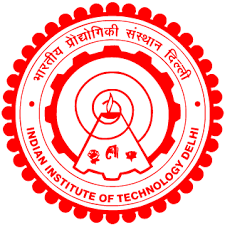
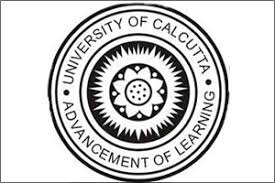

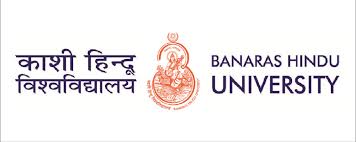
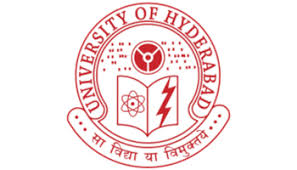
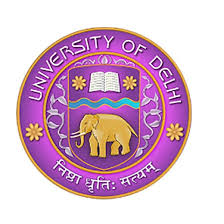
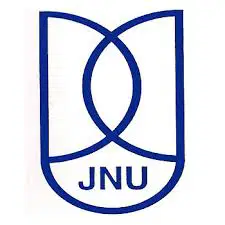
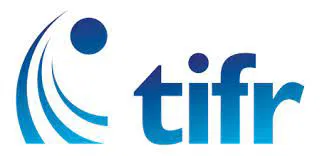

 back
back